Car Slow To Accelerate and Top 10 Fixes
Share
As you know, a smooth and responsive acceleration is indispensable for a satisfying driving experience. So, the “Why won't my car accelerate?” question echoes among numerous drivers struggling with poor performance and acceleration lag in their vehicles. For this reason, acceleration lag fix becomes pivotal to prevent further damage, wear, and compromised driving comfort.
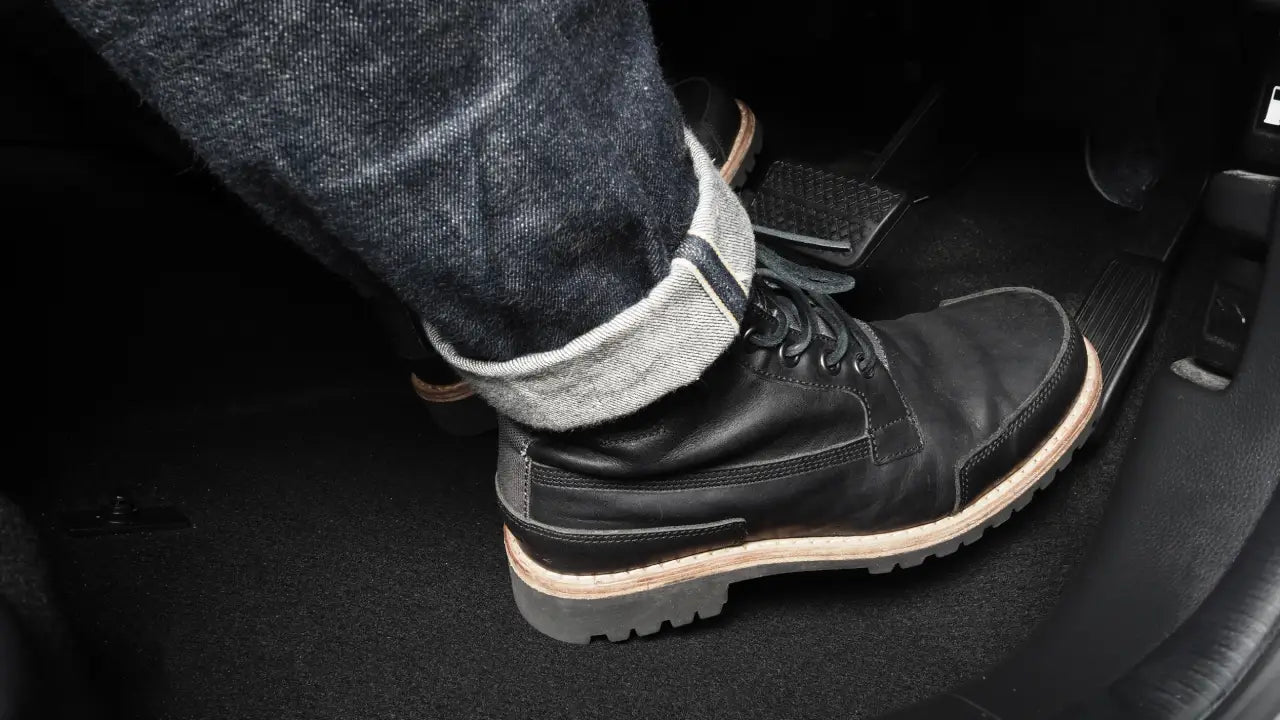
In this blog post, we will talk about what causes a car stuttering when accelerating and offer a sufficient answer to the “why won't my car accelerate” question. Therefore, if you are one of those who say, “My car won't accelerate when I push the gas," or ask the “Why does my car jerk when I accelerate?” question, all you need to do is read our detailed list of 10 common reasons and solutions for your car stuttering when accelerating.
Troubleshooting Your Car's Acceleration Issue: Tips for Describing the Problem Expertly
Before talking about reasons and solutions for your car stuttering when accelerating, let's think about how you describe your car's acceleration problem. The right description of your car acceleration problem is essential for diagnosing and resolving acceleration lag problems. Here are some common expressions about acceleration problems in a car:
- Car jerks when accelerating: This indicates abrupt, irregular movements or jolts felt when pressing the accelerator pedal. It may suggest issues with fuel delivery, ignition, or transmission problems.
- Car jerks when accelerating at low speeds: Specific mention of low speeds can indicate issues related to the transmission, such as a slipping clutch or problems with the torque converter.
- Car shakes when accelerating but not when coasting: This distinction points towards issues specifically tied to acceleration, possibly involving the engine or drivetrain components. It could indicate problems with engine mounts, misfiring cylinders, or driveline issues.
- Car stuttering when accelerating / car stutters when accelerating: Stuttering or hesitating during acceleration could signify various issues such as fuel system problems (clogged fuel filter, faulty fuel injectors), ignition system issues (fouled spark plugs, ignition coil problems), or air intake issues.
- Car won't accelerate: This denotes a severe problem where the car doesn't respond or significantly struggles when the accelerator pedal is pressed. It might suggest severe engine, transmission, or electronic control issues.
- Car hesitates when accelerating: Hesitation refers to a delay or lack of immediate response when pressuring the accelerator. This can stem from numerous issues, including a faulty throttle position sensor, vacuum leaks, or sensor malfunction.
- Car makes noise when accelerating: It indicates that when you press the accelerator pedal to increase speed, the vehicle produces unusual or abnormal sounds. The noise occurs precisely during the act of accelerating, and the type of sound can offer clues about potential issues with different car components, including the engine, transmission, exhaust system, belts, or other mechanical parts.
- Delayed throttle response: When there is a delay between pressing the accelerator and the actual increase in speed as if the car is taking longer than usual to respond, the vehicle is having trouble accelerating.

Dirty or Clogged Air Filter
If your car is having trouble accelerating, the first thing to check is the air filter. The air provided to the engine for the combustion process passes through an air filter, which catches all the impurities and debris. Continuous usage clogs the air filter and prevents air from passing through it. Thus, the engine does not have enough air to create the optimum air-to-fuel ratio, causing poor acceleration. Here is how a dirty or clogged air filter can lead to a car stuttering when accelerating:
- Air-Fuel Mixture Imbalance: The engine requires a specific balance of air and fuel for optimal combustion. When the air filter becomes dirty or clogged, it restricts the airflow into the engine. This restriction reduces the air available for combustion, disrupting the ideal air-fuel mixture. Consequently, the engine may not produce enough power during acceleration, leading to a lack of response or sluggishness when you press the gas pedal, that is, the car stuttering when accelerating.
- Reduced Engine Efficiency: A clogged air filter restricts the amount of clean air that reaches the engine. This can negatively affect the engine's efficiency in burning fuel. With less air available for the combustion process, the engine may not generate enough power to accelerate smoothly, causing hesitation, jerking, or a noticeable decrease in performance; in other words, the car stuttering when accelerating.
- Impact on Engine Components: Restricted airflow due to a dirty air filter can also affect other engine components. For instance, it might cause the engine to work harder than usual, potentially putting stress on components like spark plugs, sensors, or even the exhaust system. This added strain on the engine can contribute to poor acceleration and overall performance issues.
- Decreased Fuel Economy: An engine that does not receive enough clean air may compensate by burning more fuel to maintain performance. This increased fuel consumption can lead to decreased fuel efficiency, which becomes apparent over time and could be noticed as an associated issue alongside poor acceleration, such as car stuttering when accelerating.
Effective Solutions for a Dirty or Clogged Air Filter: Resolve Car Jerking During Acceleration
If your car is having trouble accelerating or your car jerks when accelerating due to a dirty or clogged air filter, here are two steps to address this acceleration problem:
- Maintenance: Regular air filter maintenance is pivotal for optimal engine performance. A routine inspection, adhering to the manufacturer's recommended schedule—typically every 12,000 to 15,000 miles—ensures the air filter's cleanliness and functionality. During these inspections, meticulous visual checks are conducted for signs of dirt, debris, or blockages that impede proper airflow. Maintenance involves cleaning reusable filters using compressed air or a specialized cleaning kit or replacing the filter entirely if cleaning proves ineffective or the filter is excessively clogged. It might solve the problem of car stuttering when accelerating.
- Auto Performance Modifications: Replacing the stock air filter with a high-performance, reusable, or high-flow air filter can solve the problem of car stuttering when accelerating. These aftermarket air filters offer better filtration and increased airflow than standard filters, allowing for improved engine breathing and potentially boosting horsepower.

Dirty or Faulty Mass Air Flow Sensor
When the mass air flow sensor is dirty or faulty, it may provide inaccurate readings or fail to detect the correct amount of air entering the engine. This discrepancy in air intake information can lead to several car acceleration problems, including:
- Incorrect Fuel Mixture: If the mass air flow sensor sends incorrect data to the ECU, the engine might receive either too much or too little fuel, resulting in an improper air-to-fuel ratio. This imbalance can cause the engine to run either rich (too much fuel) or lean (too little fuel), leading to performance issues like stuttering or hesitation during acceleration.
- Reduced Engine Power: A dirty or faulty mass air flow sensor can disrupt the engine's performance by causing irregular fuel delivery. This inconsistency in the air-to-fuel ratio can lead to decreased engine power, which may manifest as hesitation or stuttering when trying to accelerate.
- Engine Misfires: Incorrect air-to-fuel ratios due to a malfunctioning mass air flow sensor can also result in engine misfires. These misfires can cause momentary pauses or jerks during acceleration, contributing to the stuttering sensation.
How to Fix a Faulty Mass Air Flow Sensor?
If your car is having trouble accelerating or your car jerks when accelerating due to a dirty or faulty mass air flow sensor, here are two steps to address this acceleration problem:
- Maintenance: Fixing a faulty mass air flow sensor through maintenance primarily involves cleaning and inspecting the sensor. Cleaning it requires disconnecting the battery, locating the sensor between the air filter and throttle body, and using a specialized mass air flow sensor cleaner to remove dirt and debris without touching the sensor wires. Once cleaned, allowing the sensor to air dry thoroughly before reinstalling it is crucial. Simultaneously, inspecting the sensor for visible damage, corrosion, or signs of wear is essential. If cleaning doesn't rectify the issue or the sensor is damaged, replacement might be necessary.
- Auto Performance Modifications: Opting for an upgraded mass air flow sensor, possibly a higher-quality or performance-oriented variant, can offer enhanced accuracy and reliability, improving the engine’s overall performance. So, replacing the stock mass air flow sensor with a high-performance aftermarket one can solve the problem of car stuttering when accelerating.
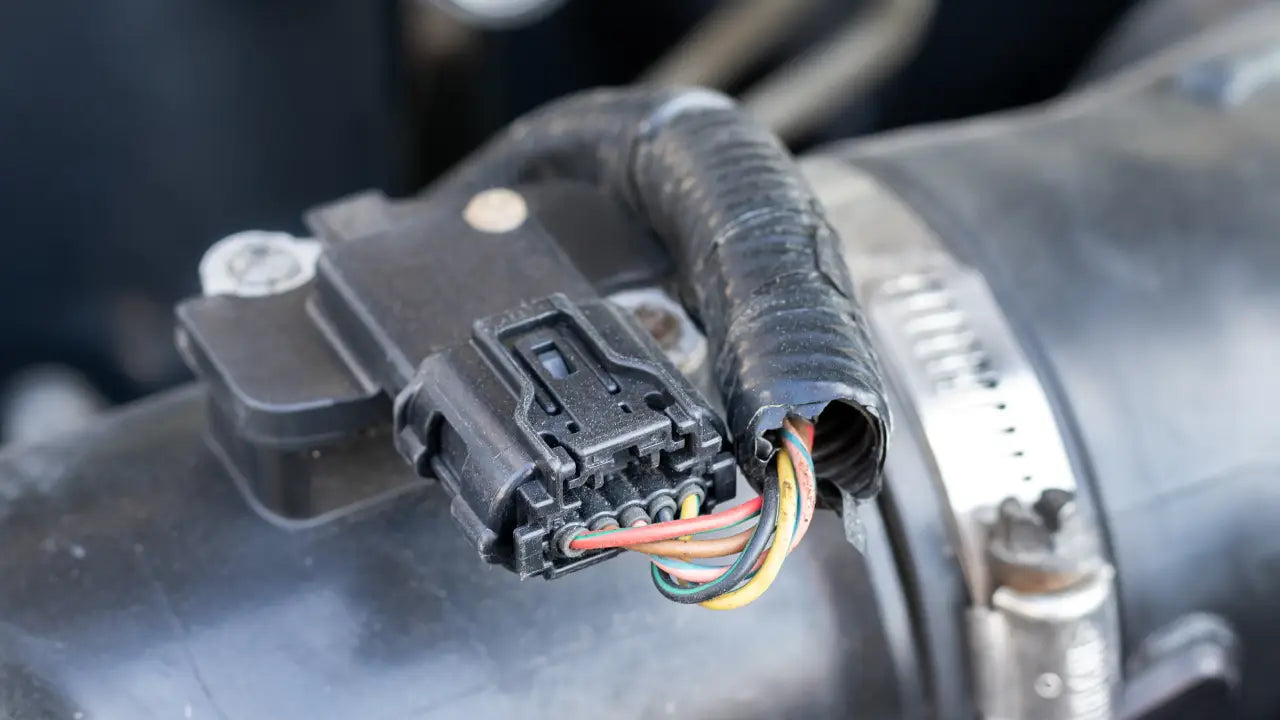
Faulty Oxygen Sensor
A faulty oxygen sensor can cause a car to stutter or hesitate during acceleration due to its critical role in monitoring and adjusting the air-fuel mixture in the engine. Here is how a faulty oxygen sensor can lead to a car stuttering when accelerating:
- Air-Fuel Ratio Imbalance: The oxygen sensor measures the oxygen in the exhaust gases, sending this data to the Engine Control Unit (ECU). The ECU utilizes this information to adjust the air-fuel mixture for efficient combustion. If the oxygen sensor is faulty or malfunctioning, it may provide incorrect readings to the ECU, so the car makes noise when accelerating.
- Engine Misfires: Inaccurate air-fuel ratios can lead to engine misfires during acceleration. These misfires result in momentary power loss, causing the car to stutter or hesitate.
How to Fix a Faulty Oxygen Sensor?
If your car is having trouble accelerating or your car jerks when accelerating due to a faulty oxygen sensor, here are two steps to address this acceleration problem:
- Maintenance: Addressing a faulty oxygen sensor involves a maintenance procedure that begins with a diagnostic check using an OBD-II scanner to retrieve specific error codes indicating the problematic sensor. Once identified, locate the oxygen sensor(s) along the exhaust system and carefully remove the malfunctioning sensor using appropriate tools, disconnecting the attached electrical connector.
- Auto Performance Modifications: Fixing a faulty oxygen sensor through auto-performance modifications is possible. An upgraded or high-performance oxygen sensor designed to provide more precise readings, improved durability, or faster response times compared to standard sensors. So, replacing the stock oxygen sensor with these high-performance oxygen sensors can solve the problem of car stuttering when accelerating.

Faulty Throttle Position Sensor
A faulty throttle position sensor causes a car to stutter or hesitate during acceleration due to its role in the engine's fuel and air management system. Here is how a faulty throttle position sensor can lead to a car stuttering when accelerating:
- Incorrect Signal to the Engine Control Unit (ECU): The throttle position sensor monitors the position of the throttle valve and sends signals to the Engine Control Unit (ECU) about the throttle's angle or position. If the throttle position sensor is faulty, it may send incorrect or erratic signals to the ECU. This misinformation can disrupt the engine's fuel delivery process.
- Irregular Air-Fuel Mixture: The ECU uses data from the throttle position sensor to determine the amount of fuel to inject into the engine based on throttle position. If the TPS is faulty, it might relay incorrect information about the throttle's position to the ECU. As a result, the engine might receive either too much or too little fuel, leading to an irregular air-fuel mixture. This inconsistency can cause the engine to hesitate or stutter when accelerating, as it does not receive the correct fuel ratio for the given throttle input.
- Delayed Response or Sticking: A malfunctioning throttle position sensor might have a delayed response or could stick in one position. This delay or sticking can cause a delay in the delivery of the appropriate fuel-air mixture to the engine, resulting in hesitation or stuttering during acceleration.
- Engine Timing and Performance Issues: Inaccurate signals from a faulty throttle position sensor can also affect engine parameters such as ignition timing. This can further contribute to poor engine performance, leading to hesitation or stuttering when you attempt to accelerate.
How to Fix a Faulty Throttle Position Sensor?
If your car is having trouble accelerating or your car jerks when accelerating due to a faulty throttle position sensor, here are two steps to address this acceleration problem:
- Maintenance: Addressing a faulty throttle position sensor involves a systematic approach. Firstly, diagnose potential issues using a diagnostic scan tool to retrieve error codes from the Engine Control Unit (ECU). Inspect the throttle position sensor and its wiring for visible damage or loose connections, ensuring all electrical connections are clean and secure. Cleaning or adjusting the throttle position sensor might resolve dirt-related problems. If the sensor is confirmed faulty or operating beyond specified voltage ranges, replacement following manufacturer guidelines is advised.
- Auto Performance Modifications: Upgrading to an aftermarket or performance-oriented throttle position sensor might be an option for improved precision or response compared to stock sensors. However, compatibility with the vehicle's ECU and proper installation are crucial considerations. ECU tuning is another modification avenue, allowing adjustments to the Engine Control Unit's programming to optimize the engine's performance with a modified throttle position sensor. So, replacing the stock throttle position sensor with a high-performance throttle position sensor can solve the problem of car stuttering when accelerating.
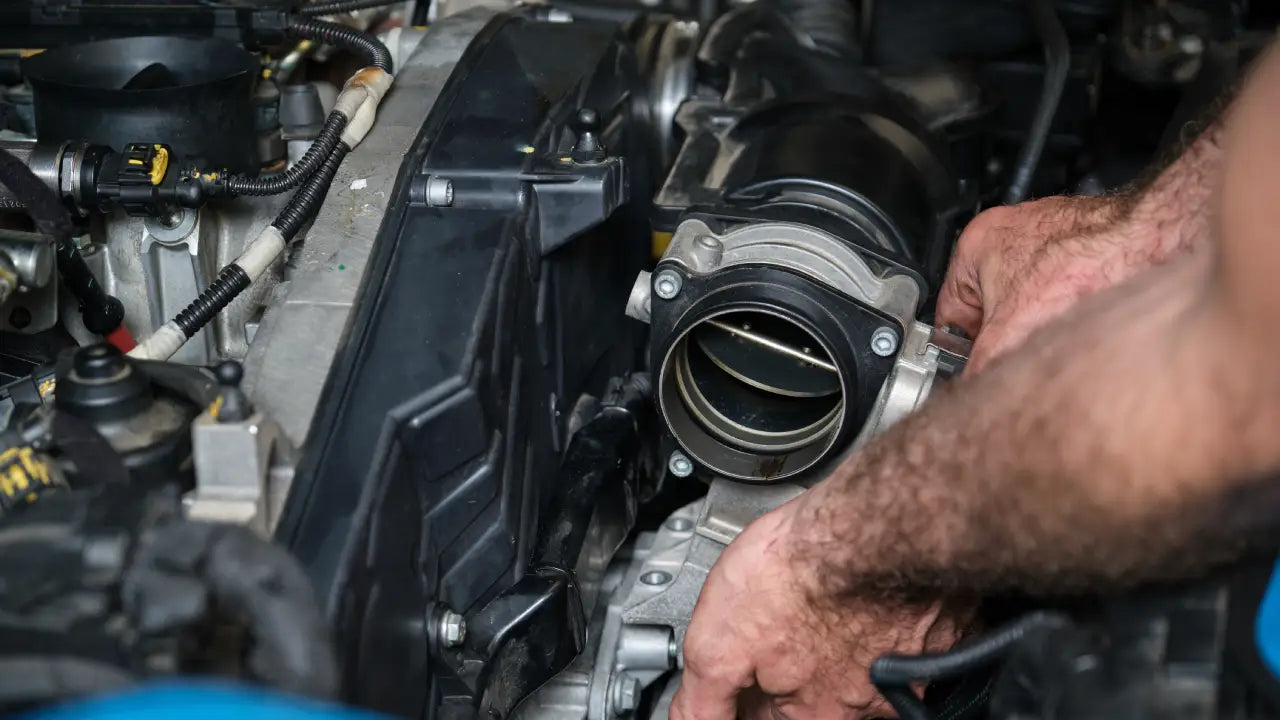
Fuel System Issues
Fuel system issues can cause a car to stutter or hesitate during acceleration due to disruptions in the proper delivery of fuel to the engine. Here is how fuel system issues can lead to a car stuttering when accelerating:
- Fuel Pump Problems: A failing or weak fuel pump may struggle to deliver an adequate amount of fuel to the engine, especially during acceleration when the demand for fuel increases. This insufficient fuel supply can lead to momentary power loss or hesitation when accelerating.
- Clogged Fuel Filter: Over time, the fuel filter can become clogged with debris, dirt, or sediment from the fuel tank. A restricted fuel filter impedes fuel flow to the engine, causing a lack of adequate fuel delivery during acceleration and resulting in stuttering or hesitation.
- Dirty or Faulty Fuel Injectors: When fuel injectors are dirty or malfunctioning, they might not spray fuel properly into the engine’s combustion chamber. This inefficient fuel atomization can lead to misfires, power loss, and hesitation, especially accelerating.
- Fuel Pressure Regulator Issues: A malfunctioning fuel pressure regulator can cause inconsistencies in fuel pressure within the system. If the pressure is too high or too low, the engine might not receive the appropriate amount of fuel, causing performance issues such as stuttering during acceleration.
- Contaminated Fuel: Poor-quality or contaminated fuel can lead to various fuel system problems. Water or impurities in the fuel can affect combustion, leading to engine hesitation or misfires during acceleration.
How to Fix Fuel System Issues?
If your car is having trouble accelerating or your car jerks when accelerating due to fuel system issues, here are two steps to address this acceleration problem:
- Maintenance: Addressing acceleration problems caused by fuel system issues requires a methodical approach to maintenance. Conduct a diagnostic scan using specialized tools to extract error codes from the Engine Control Unit (ECU), aiding in the identification of specific fuel system malfunctions. Inspect and replace clogged or dirty fuel filters, which can impede fuel flow and cause acceleration issues. Evaluate the functionality of the fuel pump by checking fuel pressure; a weak or failing pump might result in inadequate fuel delivery, affecting acceleration. Clean or replace dirty fuel injectors to ensure proper fuel atomization, a crucial factor in smooth acceleration. Additionally, inspect fuel lines and connections for leaks or damage, as these issues can disrupt fuel delivery and impact acceleration. Maintain fuel quality using additives or cleaners to eliminate deposits that could compromise engine performance and acceleration.
- Auto Performance Modifications: For those seeking better acceleration fixing fuel system issues, exploring related auto performance modifications is a viable path. To improve overall performance and acceleration, consider upgrading various fuel system components, such as the fuel pump, injectors, or fuel pressure regulator. Also, upgraded parts provide better fuel efficiency and enhanced fuel delivery, positively impacting acceleration.
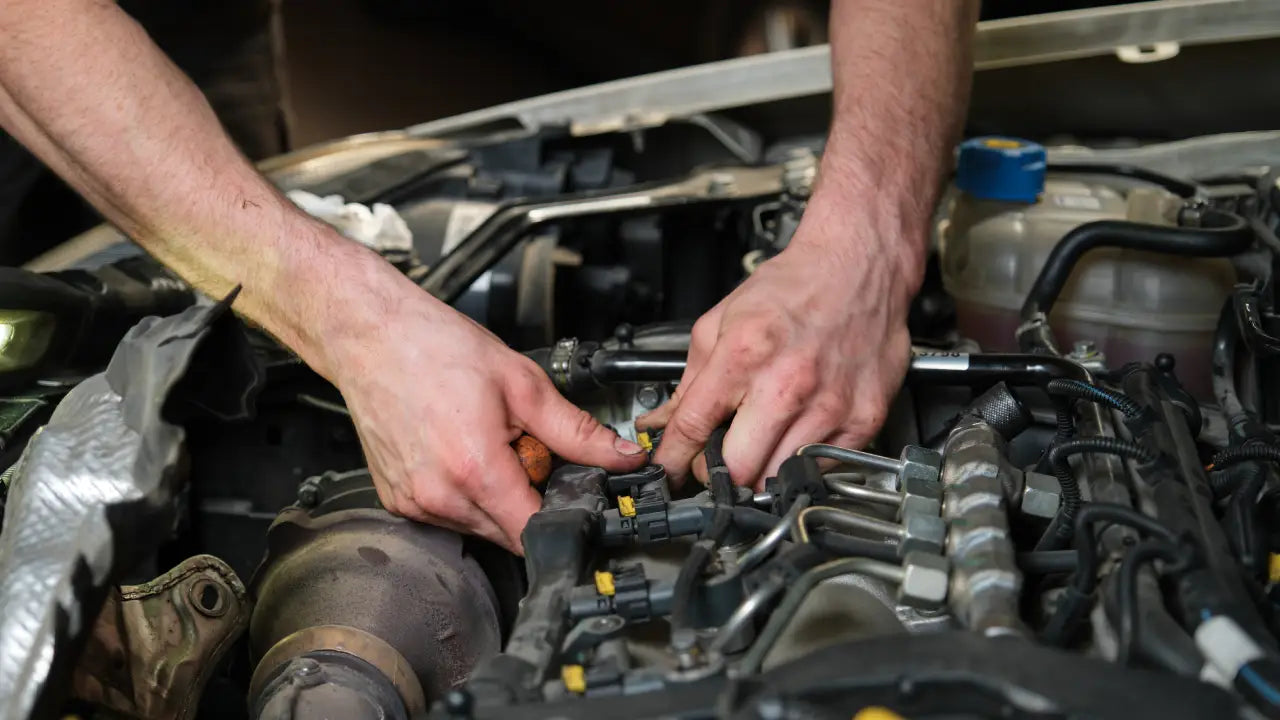
Ignition System Issues
Issues with the ignition system can cause a lack of spark or misfiring in the engine cylinders, leading to a loss of power and causing the car to stutter or hesitate when accelerating. Problems like faulty spark plugs, a malfunctioning ignition coil, disrupted timing, or a faulty ignition control module can all contribute to ignition system issues. Here is how ignition system issues can lead to a car stuttering when accelerating:
- Faulty Spark Plugs: Worn-out or damaged spark plugs can hinder the proper ignition of the air-fuel mixture, causing misfires and engine stuttering during acceleration.
- Malfunctioning Ignition Coil: A defective ignition coil can produce an irregular or weak spark, resulting in inconsistent combustion and poor acceleration.
- Disrupted Timing: Issues with the ignition timing, such as incorrect timing of the spark with the engine’s combustion cycle, can cause the engine to stutter when accelerating.
- Ignition Control Module Problems: Malfunctions in the ignition control module can disrupt the distribution of electrical signals, impacting the ignition process and causing acceleration issues.
So, addressing these elements is crucial in diagnosing and resolving ignition-related problems that result in a car stuttering when accelerating.
How to Fix Ignition System Issues?
If your car is having trouble accelerating or your car jerks when accelerating due to ignition system issues, here are two steps to address this acceleration problem:
- Maintenance: Regular ignition system maintenance is crucial for optimal engine performance and better acceleration. This includes periodic inspection and replacement of spark plugs to ensure proper ignition and combustion. Additionally, checking and replacing damaged ignition wires or cables helps maintain consistent electrical flow to the spark plugs. Testing the ignition coil for malfunctions or weaknesses is essential, as a faulty ignition coil can result in inadequate spark production. Verifying and adjusting the ignition timing according to the manufacturer's specifications helps optimize engine performance. Lastly, regular checks on the ignition control module for wear or malfunctions ensure the overall health and functionality of the ignition system.
- Auto Performance Modifications: Performance upgrade parts like high-performance spark plugs, ignition coils, and ignition wires for better conductivity and durability. Upgrading the ignition control module, tuning the ignition system parameters, or opting for specialized ignition system kits can significantly enhance ignition efficiency, timing precision, and overall engine performance, resulting in smoother acceleration and power delivery. So, we put these auto performance modifications into the category of acceleratiın lag fix. However, consulting automotive experts for compatibility and considering potential implications on warranties or emissions compliance is advisable before implementing any modifications.
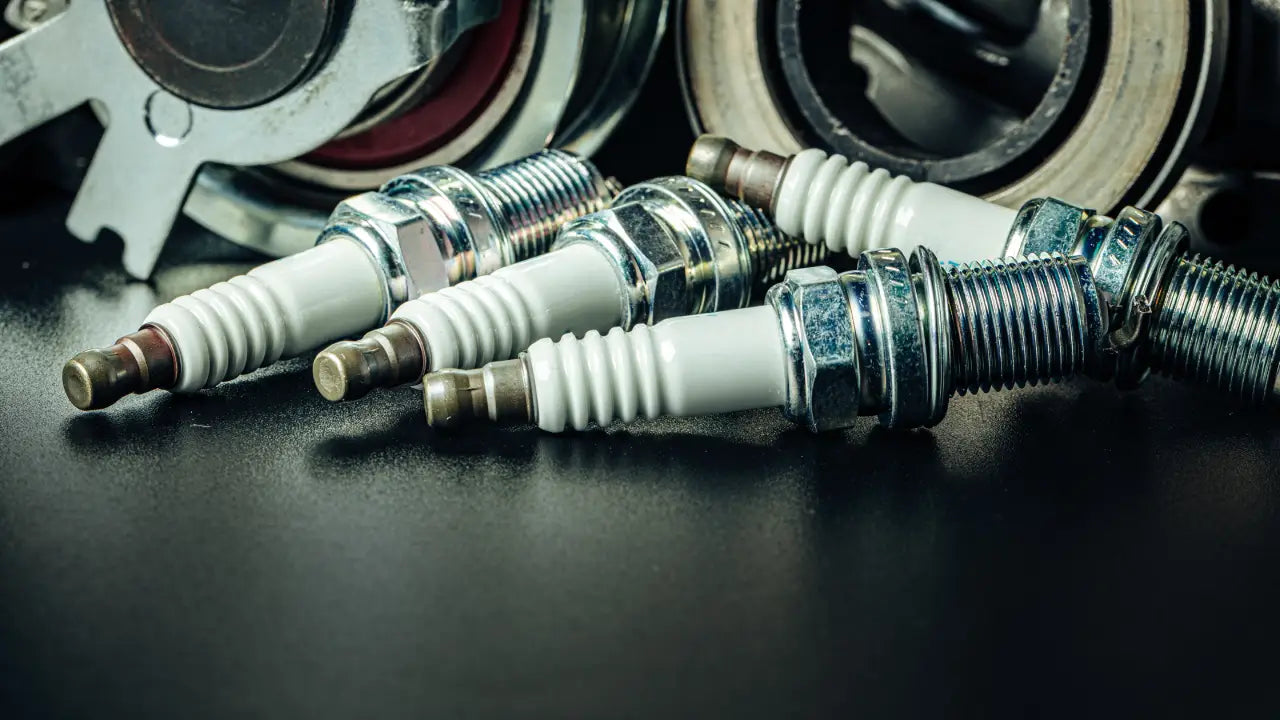
Timing Belt Malfunction
The timing belt in a car plays a crucial role in synchronizing the rotation of the engine crankshaft and camshaft. If the timing belt malfunctions or fails, it can directly affect the engine's timing, causing a car to stutter or hesitate. Here is how a timing belt malfunction can lead to a car stuttering when accelerating:
- Valve and Piston Misalignment: In interference engines, where the valves and pistons occupy the same space but move at different times, a broken timing belt can cause misalignment between the valves and pistons. When the belt breaks, the camshaft stops rotating, which can lead to the valves being stuck in an open position. As the pistons continue to move, they can collide with the open valves, causing damage to the valves, pistons, and even the cylinder head. So, this disruption in the engine operation leads to car stuttering when accelerating.
- Engine Stalling or Not Starting: A timing belt failure can also result in the engine stalling or not starting. The engine won't function correctly if the camshaft stops rotating due to a broken belt. So, the inability to generate power and compression properly will hinder acceleration and may cause the vehicle to sputter or stall when attempting to accelerate.
- Loss of Compression: Proper timing between the camshaft and crankshaft ensures the precise opening and closing of the intake and exhaust valves. This synchronization is disrupted when the timing belt fails, potentially causing the valves to remain open at the wrong times. So, this situation results in decreased power output and poor acceleration performance.
How to Fix Timing Belt Malfunction?
If your car is having trouble accelerating or your car jerks when accelerating due to timing belt malfunction, here are two steps to address this acceleration problem:
- Maintenance: If you suspect or know that your timing belt is worn, damaged, or nearing the end of its lifespan, immediate replacement is necessary. It is crucial to have this job done by a qualified mechanic because incorrect installation can cause significant engine damage.
- Auto Performance Modifications: When addressing a timing belt malfunction specifically related to acceleration problems, traditional auto performance modifications may not directly resolve the problem. So, replacing the worn-out timing belt is crucial, more so than any auto performance modifications.

Compression Issues
The compression process within an engine’s cylinders is crucial for producing the necessary power to propel the vehicle. Compression issues in the engine can significantly affect its ability to generate power efficiently, leading to problems with acceleration. Here are how compression issues can lead to a car stuttering when accelerating:
- Reduced Power Output: In an internal combustion engine, the compression stroke is where the air-fuel mixture is compressed before ignition. This compression creates pressure within the cylinders, allowing for efficient combustion. Some issues, like worn piston rings, damaged cylinder walls, or leaking valves, can result in reduced compression pressure. Reduced compression leads to weaker explosions during the combustion phase, resulting in decreased power output. Therefore, the engine may struggle to accelerate smoothly or quickly, especially under load or when more power is needed.
- Lack of Engine Response: Compression issues can cause a delay or hesitation in the engine’s response to throttle inputs. A lack of proper compression can disrupt the engine’s ability to generate immediate power when the accelerator pedal is pressed. This delay in power delivery can result in sluggish acceleration, making it difficult for the vehicle to pick up acceleration promptly.
- Misfires and Rough Running: Compression problems can lead to misfires, where the air-fuel mixture doesn’t ignite correctly or inconsistently within cylinders. This can cause the engine to run rough, with noticeable vibrations or shaking. Misfires can significantly impact acceleration by interrupting the smooth combustion process necessary for consistent power delivery.
- Loss of Torque: A reduction in compression often results in a decrease in torque, which is the rotational force that powers acceleration. Without adequate compression, the engine struggles to produce the required torque, leading to a sluggish and underpowered feeling during acceleration.
How to Fix Compression Issues?
If your car is having trouble accelerating or your car jerks when accelerating due to compression issues, here are two steps to address this acceleration problem:
- Maintenance: Start with a comprehensive compression test to resolve acceleration problems from compression issues. This diagnostic produces pinpoints cylinders exposed to reduced compression, aiding in identifying underlying problems like worn piston rings, cylinder wall damage, valve leaks, or a blown head gasket. Following the diagnosis, proceed with targeted engine repairs or an overhaul. This may involve replacing damaged cylinder walls, rectifying faulty valves, or addressing a blown head gasket. By addressing these specific problems, the engine’s ability to generate proper compression is restored, subsequently improving acceleration.
- Auto Performance Modifications: After rectifying compression-related concerns, consider optimizing overall engine performance to improve acceleration indirectly. For example, engine tuning or ECU remapping enhances the engine’s efficiency, potentially resulting in better acceleration. Additionally, upgrading specific engine components, such as intake or exhaust systems, can optimize airflow and efficiency, indirectly contributing to improved combustion and potentially enhancing acceleration. In contrast, a drastic measure, rebuilding the engine with high-performance components or opting for a more powerful engine swap, could significantly bolster acceleration capabilities. However, such modifications require careful consideration due to their complexities and costs.

Faulty Catalytic Converter
A faulty catalytic converter causes a car to stutter or hesitate due to its role in the exhaust system and engine performance. Here is how it can lead to a car stuttering when accelerating:
- Exhaust Back Pressure: A failing catalytic converter can become clogged or restricted due to internal damage, accumulation of debris, or overheating. When this happens, it impedes the smooth flow of exhaust gases out of the engine. The increased back pressure within the exhaust system restricts the engine’s ability to expel exhaust gases efficiently. So, this restriction negatively affects engine performance and responsiveness, leading to a decrease in acceleration.
- Reduced Engine Efficiency: A malfunctioning catalytic converter can also hinder the engine’s efficiency by disrupting the exhaust gas treatment process. The catalytic converter converts harmful pollutants in the exhaust gases into less harmful substances through chemical reactions. If the converter fails, it might not effectively perform its conversion, affecting the overall engine performance and efficiency. So, the engine might not produce the optimal power needed for smooth acceleration.
- Engine Misfires or Reduced Power: In severe cases, a failing catalytic converter can trigger engine misfires or even cause the engine to enter a reduced power or limp mode. This is a protective measure by the engine control unit (ECU) to prevent further damage due to inefficient exhaust gas treatment. When the ECU detects a problem with the catalytic converter, it can limit engine power output, resulting in noticeable acceleration issues, such as sluggishness or difficulty gaining acceleration.
How to Fix a Faulty Catalytic Converter?
If your car is having trouble accelerating or your car jerks when accelerating due to a faculty catalytic converter, here are two steps to address this acceleration problem:
- Maintenance: A faulty catalytic converter requires a diagnostic test. Replacement is often recommended if the diagnostic check confirms a faulty catalytic converter. Catalytic converters are not serviceable and need to be replaced entirely. So, replacing it with a compatible and high-quality converter suitable for your vehicle’s make and model is crucial.
- Auto Performance Modifications: Fixing a faulty catalytic converter causing acceleration issues usually does not involve traditional auto performance modifications. Catalytic converters primarily deal with emissions control and aren’t typically upgraded for performance gains. However, aftermarket high-flow catalytic converters may slightly improve exhaust flow and performance while maintaining emissions compliance. So, installing such high-flow catalytic converters could marginally improve acceleration.
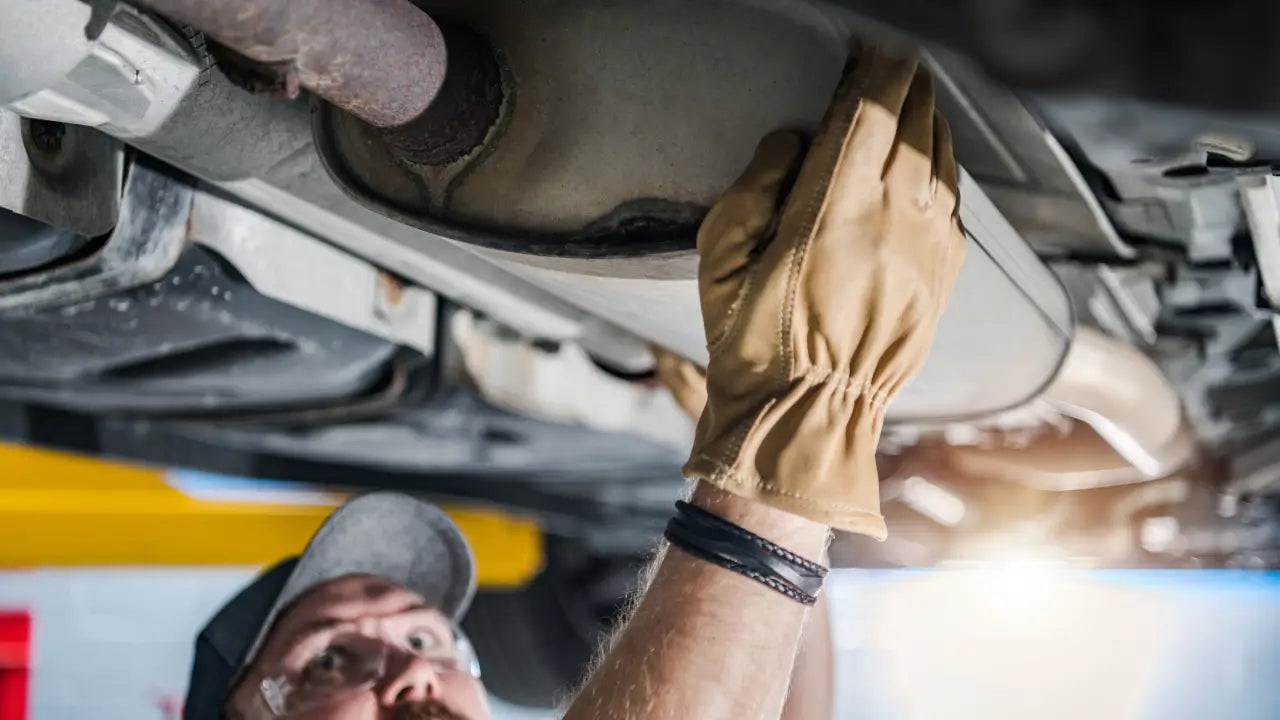
Delayed Throttle Response
Delayed throttle response refers to a sluggishness in the engine’s reaction to pressing the accelerator pedal. This delay is responsible for a car stuttering when accelerating. Here is how it can lead to a car stuttering when accelerating:
- Lack of Immediate Power Delivery: When you press the accelerator pedal, the throttle signal is sent to the engine’s control system, which adjusts fuel delivery and airflow to increase the engine power. If there is a delay in this signal processing or if the system does not respond promptly, the engine won’t immediately increase power as expected. This delay in power delivery results in sluggish acceleration, as the engine takes more time to generate the necessary power to propel the vehicle.
- Reduced Engine Performance: Factors contributing to delayed throttle response can include issues with the throttle position sensor, an electronic throttle control system, or a clogged air filter or fuel system problems. These issues affect the engine’s ability to receive accurate throttle response input, resulting in compromised performance. So, the engine struggles to respond swiftly to changes in throttle input, causing poor acceleration.
- Electronic Control System Malfunction: Modern vehicles use electronic systems to manage throttle input and engine performance. Any malfunction or glitch in these systems, such as faulty sensors or electronic control units, can lead to delayed throttle response. So, this delay directly affects the engine’s ability to produce immediate power required for acceleration.
How to Fix a Delayed Throttle Response?
If your car is having trouble accelerating or your car jerks when accelerating due to a delayed throttle, here are two steps to address this acceleration problem:
- Maintenance: Inspect the throttle body, throttle position sensor, and associated wiring for any signs of dirt, carbon buildup, or damage. Often, accumulated dirt or carbon deposits can hinder proper throttle operation, leading to delays in response. Clean the throttle body using a recommended cleaner to remove any buildup. Additionally, check and clean the throttle position sensor to ensure it accurately detects the throttle position. Address any damaged wiring or connections affecting the throttle system. This maintenance step aims to restore the proper functioning of the throttle system.
- Auto Performance Modifications: The throttle response controller is one of the most effective auto performance modifications that eliminates delayed throttle response. However, there are many different throttle response controller brands on the market. If you want to learn the best throttle response controller, all you need to do is keep reading!
FAQ's About Car Jerking During Acceleration
- What are the most common reasons for a car to jerk when accelerating?
The most common reasons include issues with the fuel system (like a dirty fuel injector), problems in the ignition system (such as faulty spark plugs), and transmission-related issues. Other factors could be clogged air filters or malfunctioning sensors.
- Can transmission problems cause jerking during acceleration?
Yes, transmission problems can cause jerking. Issues with automatic transmission fluid, such as low levels or old fluid, and problems with the transmission system itself can lead to jerking motions during acceleration.
- How do ignition system issues lead to car jerking?
Problems in the ignition system, like worn or faulty spark plugs, or defective ignition coils can disrupt the engine's power flow, causing jerking or stuttering during acceleration.
- Could a dirty fuel filter be responsible for acceleration issues?
Absolutely. A dirty or clogged fuel filter can impede the flow of fuel to the engine, resulting in uneven power delivery and jerking during acceleration.
- What maintenance tips can prevent jerking during acceleration?
Regular maintenance such as changing spark plugs, replacing air and fuel filters, checking and maintaining transmission fluid, and ensuring all sensors are working correctly can help prevent jerking during acceleration.
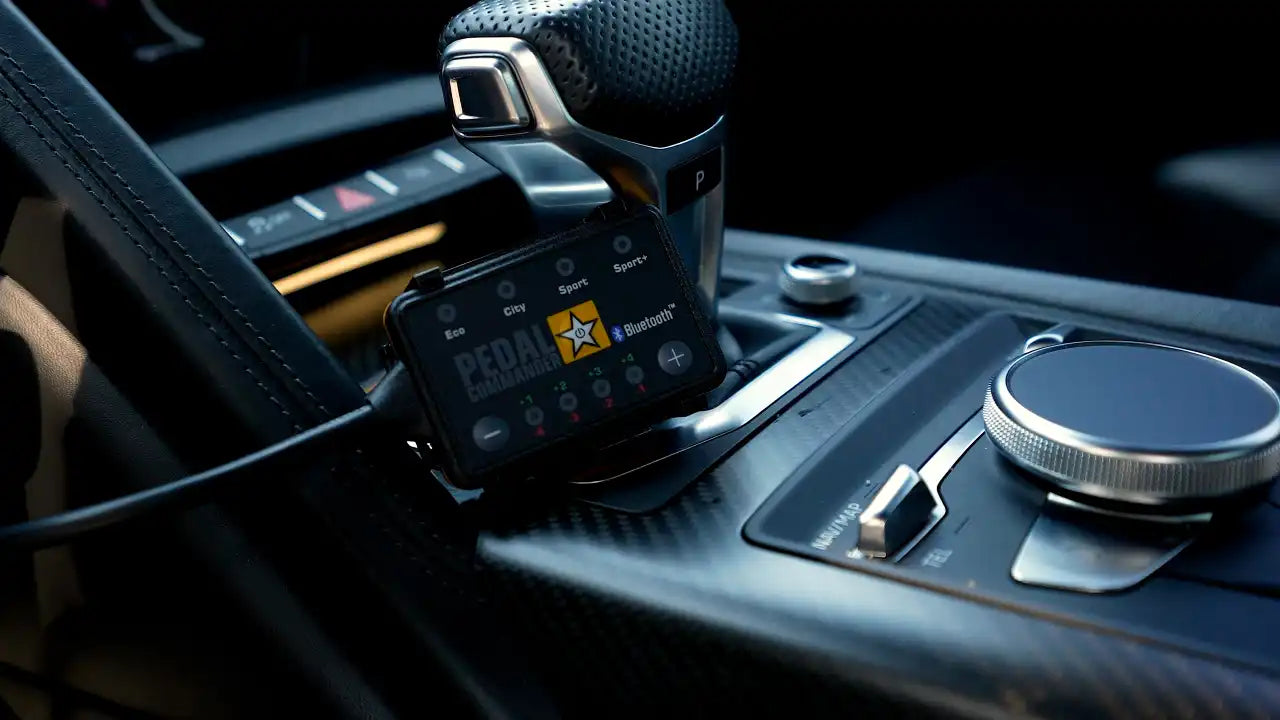
Say Goodbye to Acceleration Lag Forever with Pedal Commander®!
If your car is having trouble accelerating or your car jerks when accelerating, you should know that Pedal Commander® is the key to fixing acceleration lag. What does Pedal Commander® do? It eliminates annoying throttle lag from your accelerator pedal. So, Pedal Commander® is quite assertive about transforming a car stuttering when accelerating into a wild beast. Let’s explore what incredible features Pedal Commander® has beyond immediate responsiveness fixing acceleration lag.
Pedal Commander® has a practical installation process that takes only 10-15 minutes. So, you can install it on your own without paying an extra fee for professional help. Moreover, Pedal Commander® has a user-friendly mobile app and Bluetooth control thanks to its advanced technology. Thus, you can easily customize your acceleration with the Pedal Commander® app whenever you want.
What’s even more impressive?, Pedal Commander® considers your comfort in all seasons and road conditions with its four adjustable driving modes: Eco mode, City mode, Sport mode, and Sport+ mode. As you can see, Pedal Commander® is quite assertive about making you feel like driving four different cars. So, if you want to get rid of poor acceleration and fix acceleration lag, all you need to do is learn more about it just by watching our YouTube video below:













